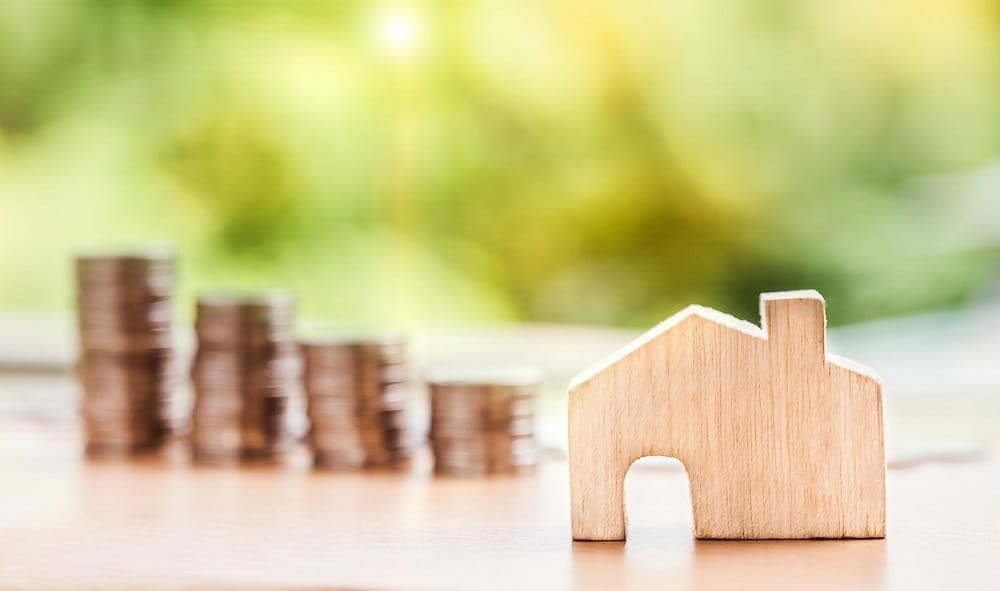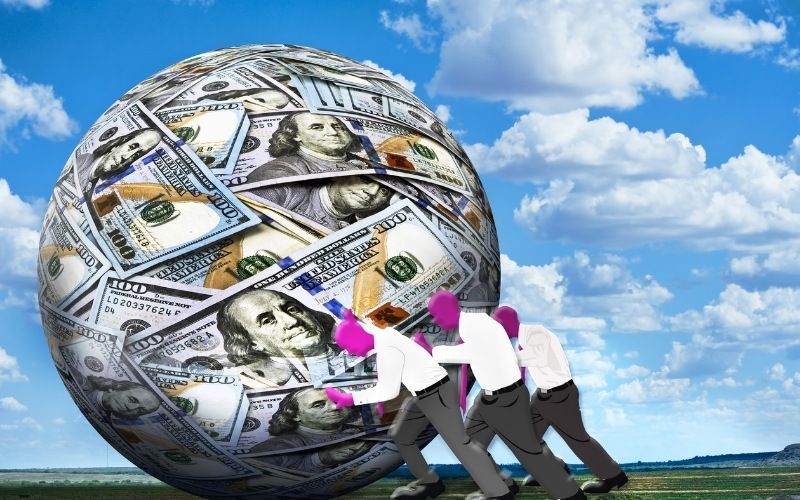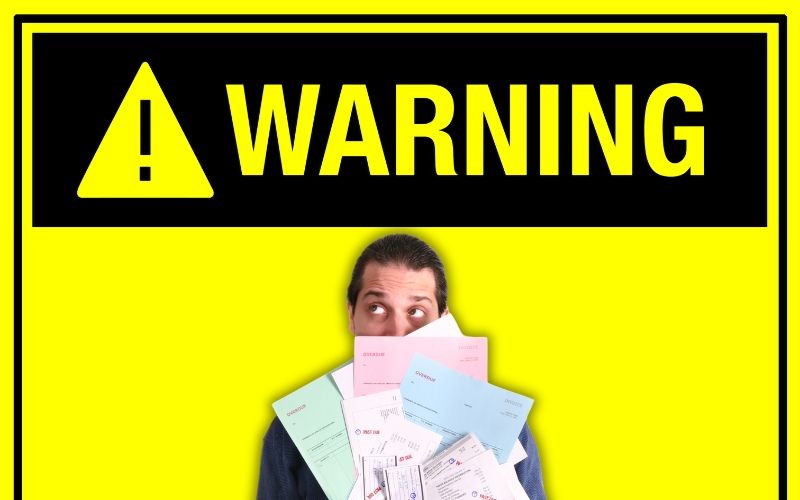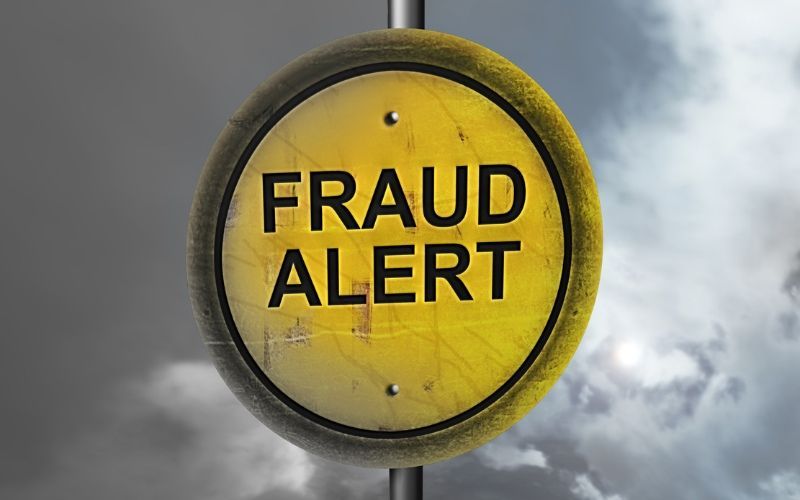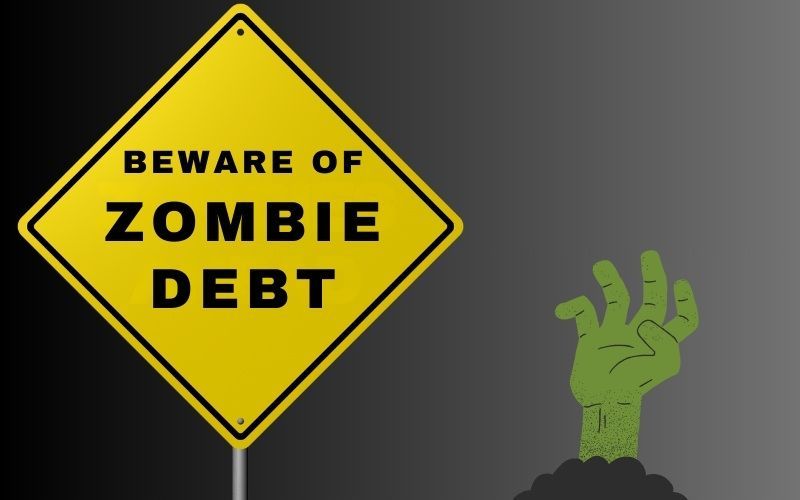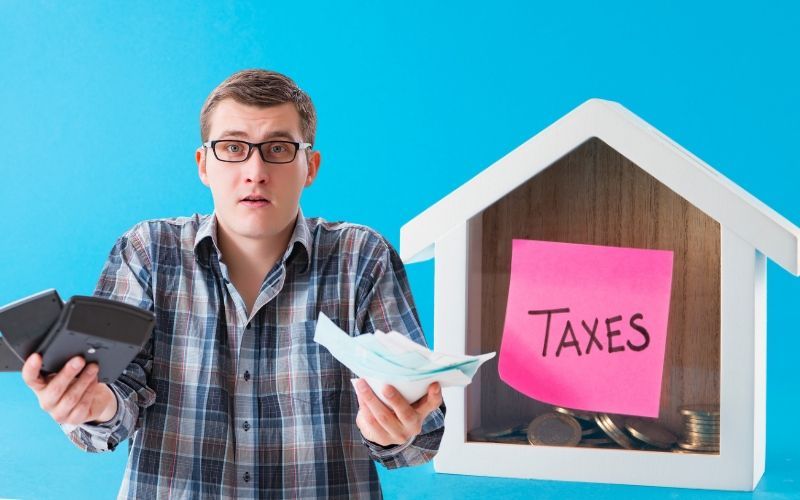How To Buy A House With Bad Credit In 2018
Last Updated: November 09, 2023
Unlocking Doors with Bad Credit: Buying a Home in 2018
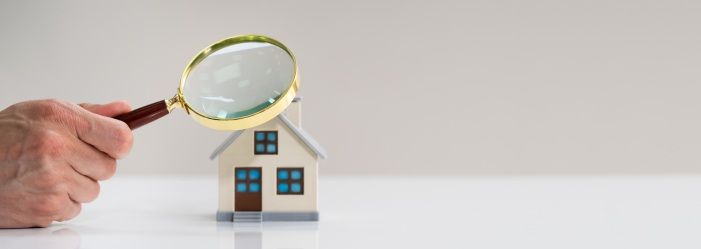
How to buy a house with bad credit is one question we hear from our readers often. You may have been told that buying a house with bad credit is a virtual impossibility; or if you somehow manage to get a mortgage, you’ll be hit with a cripplingly high-interest rate.
Before tackling this challenge, it’s essential to arm yourself with knowledge. Discover essential insights for prospective homebuyers to better navigate the process. While it is unquestionably tough to purchase a property with poor credit, neither of the two statements above is correct. There is a program that can help you when you are looking at buying a house with bad credit and it provides you with a reasonable loan rate.
Mortgages usually have out-of-reach requirements for those battling poor credit. Streamlining your finances can be a crucial step, and understanding whether to settle debts before a home purchase can make a significant difference in your mortgage terms. Borrowing for a house is the biggest expenditure most people ever face and lenders will get personal to deduce your creditworthiness.
You’ll need to show information about your student loans, auto loans, credit card balances, outstanding medical bills, and all other financial obligations. To comprehend the full financial impact, it’s beneficial to explore a comprehensive breakdown of homeownership expenses.
Lenders use this information (along with your pay stubs) to calculate your debt-to-income ratio. If this ratio is too high, you’ll be denied. Most lenders want this ratio below 36%, meaning your monthly debt payments must not absorb more than 36% of your salary.
Talk to one of our debt specialists for FREE. They can help answer any questions you may have when looking to buy a house with bad credit.
What is Classified as a ‘Bad’ Credit Score?
Every credit reporting agency calculates a
Fair Isaac Corporation (FICO) score based on your credit information. This score can range from 300 to 850. A score of below 580 places you in the bad credit range.
Your credit score is based on the following information:
- Payment History
- Debt-to-Credit Utilization Ratio
- Credit History Length
- New Credit
- Types of Credit
While there are ways to boost your credit score, they take time which isn’t helpful if you’re buying a home with bad credit in the near future. Fortunately, it could be possible to benefit from a Federal Housing Administration (FHA) loan; a low-interest mortgage offered to applicants with bad credit scores.
Am I Eligible for an FHA Loan?
Just to be clear, the loan is ‘backed’ by the FHA but you still need to deal with lenders. The
FHA loan is theoretically available to applicants with a credit score of 500-580. However, prospective lenders can still turn you down and up until 2017, it was difficult to get a loan with a credit score of under 620. As of December 2017,
23.6% of applicants with a credit score of 600-649 were approved for an FHA loan; only 5.25% of applicants were approved with a credit score of 550-599.
The FHA loan program was implemented in 1934 and has helped over 40 million Americans achieve their dream of homeownership. It recently announced that it would be sweetening the deal for lenders and the new changes could help 100,000 extra families own a home each year. Here are the organization’s credit score minimums; please take note of them if you are intent on finding out how to buy a house with bad credit:
FHA Loan Requirements
- A score of 300-499: Not eligible for an FHA loan.
- A score of 500-579: Eligible with a 10% down payment.
- A score of 580+: Eligible with a 3.5% down payment.
Unfortunately, there are no programs for people with credit scores below 500. Indeed, mortgage experts suggest that there is little possibility of a loan with a score of under 530.
As you can see, you need your credit score to be above 580 if you wish to benefit from the 3.5% down payment option. For the sake of calculation, it means you can buy a $300,000 house with a $10,500 down payment. If your score is between 500 and 579 however and you are approved, you require a 10% down payment which is a substantial sum of $30,000.
Improve Your Debt-to-Income Ratio
Your debt-to-income (DTI) ratio compares how much you owe each month to how much you earn. Most lenders want your DTI to be 36% or less to qualify for a mortgage.
If your ratio is too high, take steps to lower it:
- Pay down credit card and loan balances
- Pay off collection accounts
- Have co-borrowers join your application
- Increase your income with a side job or freelancing
- Reduce monthly expenses like cell phone plans or cable bills
Getting your DTI down can help offset issues with your credit score when applying for a mortgage.
Bump Up Your Down Payment On a House
While this is admittedly a difficult undertaking, it is one of the best ways to buy a home with bad credit. Some lenders will approve you for a home loan even if you have poor credit, so long as you make a significant down payment. As you’ll need 20% of the home’s purchase price just to avoid
Private Mortgage Insurance (PMI), most lenders will expect applicants with bad credit to put down 30% of the property’s price. Using our hypothetical $300,000 example, you’ll have to save $90,000!
What a Bad Credit Score Does to Mortgage Rates
A 100-point drop in your credit score could add 0.25% or even 0.5% to your rate while a person with a good credit score can expect a rate of at least 1% lower than someone with a poor or bad credit score. If you receive a 30-year fixed-rate loan of $300,000 at 4%, your monthly payments are around $1,300. At a rate of 5%, those payments increase to over $1,500. Over the course of your mortgage, that 1% difference equates to over $40k extra in interest! We encourage our clients and readers to visit our
Credit Card Interest Calculator to get a better idea of how much you’ll be paying on interest and principal.
Provide Documentation for Everything
When applying for a mortgage with poor credit, you need to document all income sources, assets, and debts. Having support for every number on your application reduces the risk for lenders.
Be ready to provide:
- Pay stubs covering the last 60 days
- W-2s for the last 2 years
- Federal tax returns for the last 2 years
- Bank and investment statements showing assets
- Documentation of any supplemental income
- Detailed list of debts and minimum payments
Leave no stone unturned when gathering documents. The more verification you can provide, the better your chances of mortgage approval.
Ask for Pre-Approval, Not Pre-Qualification
Pre-qualification provides a quick estimate of how much home you may be able to afford based on basic financial information. Pre-approval is more involved, with lenders checking documents and running your credit report. While pre-qualification gives you an idea, a pre-approval letter carries more weight and shows sellers you are a serious buyer.
The pre-approval process also allows you to address any issues upfront before formally applying for a mortgage. If trying to buy a home with poor credit, it's best to get pre-approved so you know your actual chances of securing financing.
Consider Credit Counseling
Working with a non-profit credit counseling agency can help you improve your credit score before applying for a mortgage. Credit counselors can review your full financial situation, provide budgeting assistance, negotiate with creditors for lower payments or interest rates, and get you on a debt management plan. This can help you pay down debts faster while learning how to manage your finances responsibly.
Complete a Homebuyer Education Course
Many non-profit agencies and housing authorities offer free homebuyer education classes. These courses cover topics like budgeting, mortgage qualification, down payments, the home-buying process, and more. Completing one of these programs shows lenders you understand the responsibilities of being a homeowner. Some agencies also provide completion certificates that allow for lower downpayment requirements on certain mortgage programs.
Use Alternative Credit Data
Many lenders only look at your standard credit reports from the three major bureaus. However, some lenders, especially online ones, may factor in alternative credit data when evaluating your application. This additional data can include your rental payment history, utility bill payments, insurance payments, and other regular bills. Maintaining a good track record with non-traditional credit data can help boost your mortgage eligibility.
You Can Buy a House with Bad Credit, But Try and give it a Boost First
While it is untrue to suggest that bad credit will prevent you from becoming a homeowner, it will make things harder. If you are unable to get the FHA loan, you’ll have to save up a large down payment and lenders will issue a higher interest rate because they see you as a greater risk. Check your credit report for errors, pay high-balance and high-interest credit cards first, and try to make all loan payments on time.
Also, don’t forget to check out our finance charge calculator to see exactly how much you’ll be paying on interest and principal. When it's time to enhance your living space, considering the financial implications is critical. Learn when it might be strategically wise to invest in your home through additional financing and when it's best to wait.
Find out how a Certified Debt Counselor can personalize a Debt Relief Program for you today!
FAQs
-
What credit score do I need to buy a house?
The minimum credit score for a conventional mortgage is usually around 620. Government-backed loans like FHA and VA may go down to 500 or lower. The better your credit, the more financing options you will have.
-
Can I get a mortgage after bankruptcy/foreclosure?
Yes, but you'll likely need to wait at least 2 years after the bankruptcy or foreclosure discharge date. The longer you wait, the better your chances of approval. Focus on rebuilding credit in the meantime.
-
Do all mortgage lenders check credit the same way?
No. While most look at standard credit reports, some lenders, especially online ones, may consider alternative credit data like rent payments too. Shop around to find a lender that looks at your full financial picture.
-
Will paying off collections help my mortgage approval chances?
Yes! Paying off collections or negotiating pay-for-delete can improve your credit score quickly. Get documentation from the collector showing a $0 balance.
-
How long does bad credit impact mortgage rates?
Expect to pay a higher interest rate compared to buyers with good credit. Most lenders will want 2 years of good payment history before giving you their lowest rates.
-
Is a mortgage broker better than applying directly?
Mortgage brokers have access to programs you may not see directly. But make sure to compare quotes from lenders too, not just brokers.
-
Does a big down payment overcome bad credit?
A larger down payment can help offset credit risk, but may not always guarantee approval. Offering 30% down or more improves your chances but doesn't eliminate issues with your credit report.
Conclusion
Buying a home with poor credit scores below 580 is challenging but possible in many cases. The keys to getting approved for a mortgage when you have bad credit include looking into FHA, VA, and other government-backed loans that offer more flexibility.
Increasing your down payment amount to offset credit risk, with lenders preferring at least 20% down but expecting 30% or more from borrowers with poor credit; reducing debt and improving your credit score and debt-to-income ratio however possible before applying; providing extensive documentation to support your income, assets, debts, and financial stability; considering the use of a co-signer if you cannot meet qualification requirements on your own; exploring alternative credit data that highlights your responsibility with non-traditional lending; and comparing multiple lenders and brokers to find the best mortgage rates and programs for your situation.
With persistence and the right approach, there are home loan options available even if you have poor credit. Work on improving your score and financial profile, save for a larger down payment, gather documentation, and explore specialized lending programs to buy a home when you have bad credit.
If you are struggling with overwhelming debt and want to explore your debt relief options, Pacific Debt Relief offers a free consultation to assess your financial situation. Our debt specialists can provide objective guidance relevant information and support to help find the right debt relief solution.
Are you ready for debt relief help now?
Get Free Consultation- Accredited by Better Business Bureau with BBB A+ rating(4.93 rating and 1542 reviews)
- US News and World Reports and Bankrate ranked Pacific Debt as one of “The Best Debt Settlement Companies of 2020”
- 6.9 star rating by BestCompany.com (over 2379 client reviews)
- 4.8 star rating by TrustPilot based (over 1477 verified consumer reviews)
- ConsumerAffairs.com Accredited (over 543 verified reviews with an average rating of 5 stars)
- A Top 10 Rated Company by TopTenReviews.com , ConsumersAdvocate.com and Top10debtconsolidation.com
- 4.7 star rating by Google (220 client reviews)
- 100% rating by SuperMoney (9 client reviews)
Pacific Debt Relief
750 B Street Suite 1700
San Diego, CA 92101
Hours of Operation
Mon-Thurs: 6am - 7pm PST
Friday: 6am - 4:30pm PST
Saturday: 7:30am - 4:30pm PST
Clients
Phone: (877) 722-3328
Fax: (619) 238-6709
Email: cs@pacificdebt.com
Non-Clients
Phone: (833) 865-2028
Fax: (619) 238-6709
Email: inquiries@pacificdebt.com
"To eliminate debt one household at a time, while placing people first." - Pacific Debt
© 2024 Pacific Debt Inc. dba Pacific Debt Relief, all rights reserved.
California Privacy Policy |  Do Not Sell My Personal Information
Do Not Sell My Personal Information
GLBA Privacy Notice | CDRI Accredited Member
*We do not discriminate on the basis of race, color, religion, sex, marital status, national origin or ancestry.
*Please note that all calls with the company may be recorded or monitored for quality assurance and training purposes.
*Your visit to our website may be monitored and recorded from essential 3rd party scripts.
*Clients who make all their monthly program deposits pay approximately 50% of their enrolled balance before fees, or 65% to 85% including fees, over 24 to 48 months (some programs lengths can go higher). Not all clients are able to complete our program for various reasons, including their ability to save sufficient funds. Our estimates are based on prior results, which will vary depending on your specific circumstances. We do not guarantee that your debts will be resolved for a specific amount or percentage or within a specific period of time. We do not assume your debts, make monthly payments to creditors or provide tax, bankruptcy, accounting or legal advice or credit repair services. Pacific Debt is not a credit repair firm nor do we offer credit repair services. Our service is not available in all states and our fees may vary from state to state. Please contact a tax professional to discuss potential tax consequences of less than full balance debt resolution. Read and understand all program materials prior to enrollment. The use of debt settlement services will likely adversely affect your creditworthiness, may result in you being subject to collections or being sued by creditors or collectors and may increase the outstanding balances of your enrolled accounts due to the accrual of fees and interest. However, negotiated settlements we obtain on your behalf resolve the entire account, including all accrued fees and interest. C.P.D. Reg. No. T.S. 12-03825.
